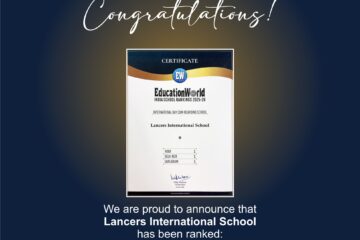Within the International Baccalaureate (IB) curriculum, the Theory of Knowledge (TOK) course is a shining example of critical thinking and intellectual research. TOK, which aims to go beyond the confines of conventional disciplines, is essential in helping students develop their critical thinking, assessment, and understanding of the nature of knowledge itself. The Theory of Knowledge (TOK) encourages students of IB school to investigate the underlying presumptions and biases present in knowledge systems by exploring fundamental issues such as how information is obtained, the validity of various knowledge claims, and the ramifications of multiple views.
This analysis promotes a habit of thorough inquiry and a stronger comprehension of epistemology, the study of knowing. Furthermore, TOK highlights the relevance of various modes of knowing and the procedures employed to substantiate knowledge claims in a variety of fields, emphasizing the connectivity of knowledge across disciplines. Consequently, TOK fosters IB school curriculum students’ intellectual development while also providing them with the fundamental knowledge and abilities needed to critically engage with difficult challenges in both academic and real-world settings.
Unpacking the Essence of TOK
Fundamentally, TOK asks students to investigate the following knowledge questions: How do we know what we say we know? What are the origins and boundaries of knowledge in the many fields of study? By use of these investigations, TOK fosters a thorough investigation of the methods, prejudices, and consequences that are inherent in the process of acquiring and verifying knowledge across disciplines.
Fostering Critical Thinking
Through interaction with a variety of viewpoints and conceptual frameworks, students develop their critical analysis and evaluation skills. They are asked to consider the validity of various knowledge claims, recognise biases, and challenge presumptions. In addition to honing their capacity to construct coherent arguments, this process cultivates an intellectual scepticism habit—the readiness to question concepts and pursue a deeper comprehension.
Embracing Interdisciplinary Connections
The TOK highlights how knowledge from different courses in the IB school curriculum is related. It encourages students to identify connections and patterns within several subject areas, developing a comprehensive grasp of how knowledge is created and applied in the actual world. Through the analysis of knowledge evolution across multiple disciplines, including the natural sciences, human sciences, history, mathematics, and the arts, schools in Gurgaon help students acquire a deeper understanding of the varied approaches to knowledge and the techniques employed to substantiate assertions within each field.
Encouraging Reflection and Inquiry
The emphasis on introspection and inquiry is fundamental to TOK. Students are encouraged to critically examine both their own and other people’s perspectives and presumptions through talks, essays, and presentations. The ability of students in IB schools in Gurgaon to participate in meaningful discourse and cooperative learning experiences is enhanced by this reflective process, which fosters intellectual humility and openness to different points of view.
Real-World Applications and Ethical Considerations
Beyond purely theoretical investigation, TOK pushes students to apply their analytical abilities to ethical conundrums and real-world problems. Students acquire the ability to evaluate the societal ramifications of knowledge claims through an analysis of current debates and global issues. By putting TOK concepts into practice, students in top IB schools in India are better equipped to become responsible, knowledgeable, and aware global citizens who can intelligently contribute to both local and global societies.
Assessment and Evaluation in TOK
TOK assessment is complex and includes both external and internal elements. Through written essays, oral presentations, and class debates, students analyse and critically evaluate arguments and knowledge questions to demonstrate their understanding. With the help of this thorough assessment process, students in top IB schools in India are guaranteed to understand TOK principles and acquire the necessary abilities to apply them successfully in a variety of situations.
The Role of Educators and Resources
Proficiency in teaching TOK is essential for fostering engaging dialogues and guiding students through challenging knowledge searches. To create a welcoming learning atmosphere where students are inspired to consider other points of view and interact critically with the course contents, teachers are essential. Students’ learning experiences in TOK are further enhanced by having access to resources, such as scholarly literature, multimedia presentations, and multidisciplinary case studies.
Benefits of TOK: Preparation for Higher Education and Beyond
The advantages of TOK don’t stop in the classroom. Through the development of critical thinking, analytical abilities, and a sophisticated comprehension of information, TOK equips students for success in both postsecondary education and the workforce. Graduates of the IB programme with TOK skills are well-positioned to succeed in academic environments that place high importance on independent thought, in-depth investigation, and intellectual curiosity.
The Theory of Knowledge course is essential to the IB school curriculum because it develops critical thinkers with a thorough comprehension of the intricacies of knowledge. Through TOK, students in IB schools in Gurgaon gain the ability to critically analyse evidence and challenge presumptions as well as recognise how information from different disciplines is connected. TOK gives students the abilities and mindset necessary to manage a constantly changing world with confidence and intellectual rigour by encouraging a reflective and inquiry-based approach to learning. As a result, TOK is a fundamental component of IB school education, enabling students to rise to intellectual difficulties and make significant contributions to advancement and global dialogue.


